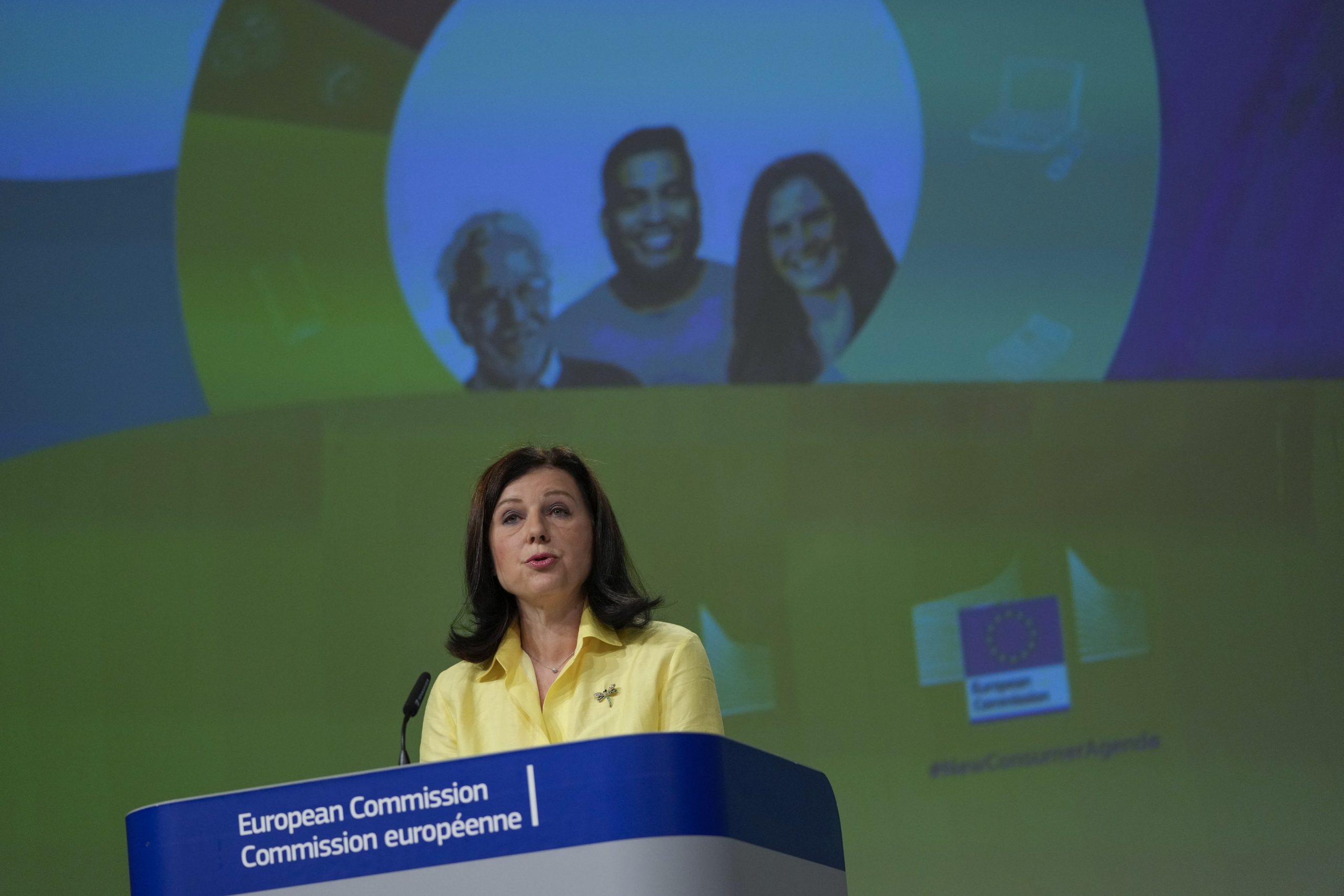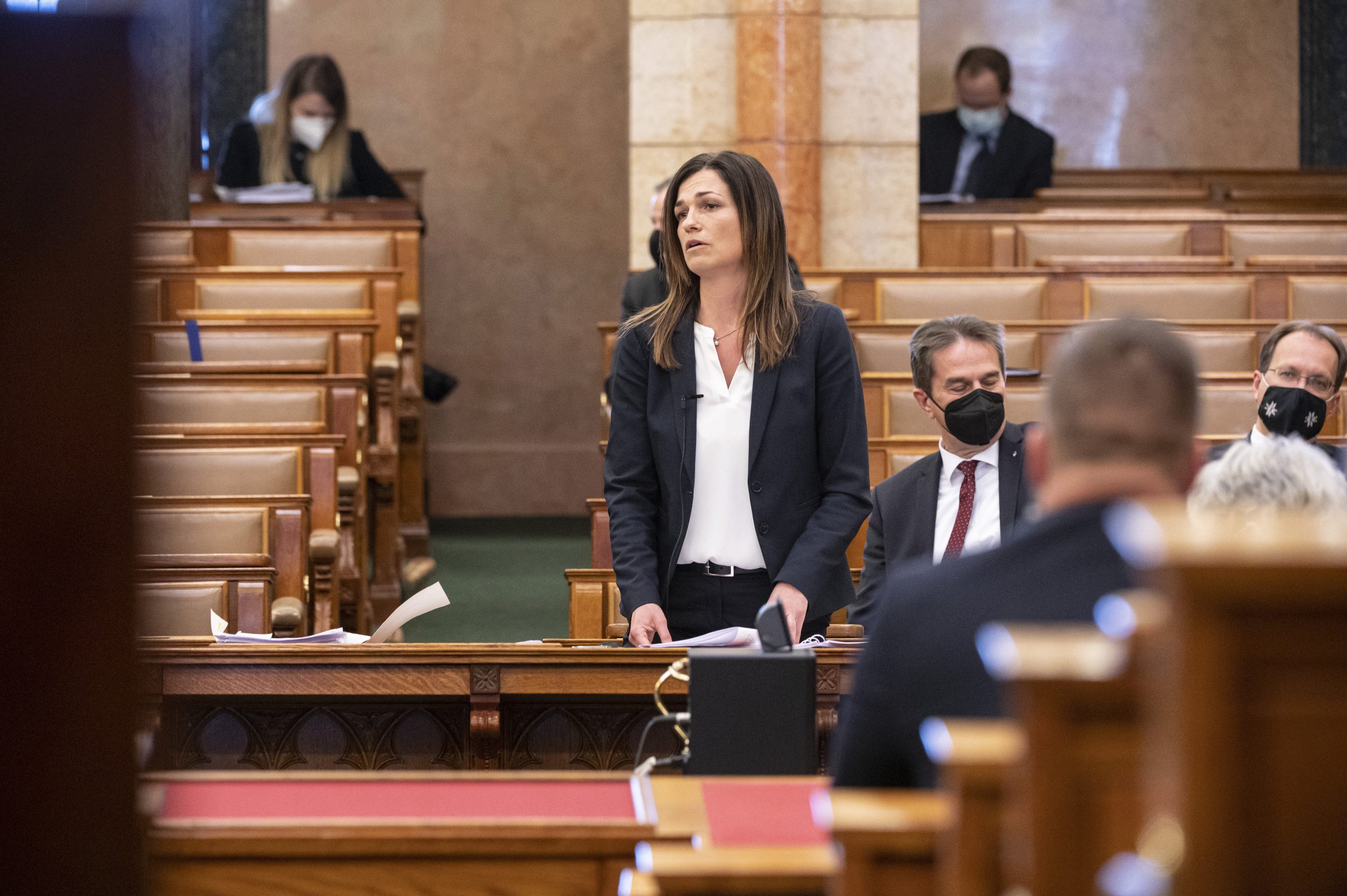
The EC is, however, examining further possibilities for legal action. According to the Justice ministry, Brussels does not have the authority to tell Hungarians how they should raise their children.Continue reading

“The European Commission has been blackmailing Hungary over its child protection law,” Justice Minister Judit Varga said on Facebook, commenting on the commission’s fresh rule of law report. The annual document published on Tuesday found, among other things, that judicial independence and media pluralism are at risk in Hungary and its legislation lacks transparency. Meanwhile, EU Justice Commissioner, Didier Reynders, also revealed that the Commission had decided to withhold Hungary’s recovery funds until the Orbán government implements a judicial reform.
EU report on Hungary: Inadequate anti-corruption rules, press freedom in danger
The European Commission released the annual report on the state of rule of law in each EU country on Tuesday. The report package includes a more than 30-page report on Hungary, which in addition to last year’s concerns, also includes criticism of the EC’s child protection law.
Among other things, this year’s report finds that Hungary lacks progress on combatting corruption, while its media and civil society are under threat, and its legislation lacks transparency.
The findings of this year’s rule of law report regarding Hungary include:
According to Hungary’s Justice Minister Judit Varga, the European Commission’s recently published report on the rule of law is nothing more than an attempt to blackmail Hungary over its ’child protection law’ which critics say in reality discriminates against sexual minorities.
“We are not surprised: the latest report of the European Commission focuses on the Hungarian Law on Child Protection,” she wrote in her English-language post. “According to them, in Hungary right now, there is no rule of law precisely because we protect children’s and parents’ rights at the highest level.”
She said the reason behind the EC’s criticism was that “we do not allow LGBTQ activists and any sexual propaganda into Hungarian schools and kindergartens.”
“Be under no illusion: the verdict in the latest report on Hungary has been made even before a letter was written on paper, as instead of justification, objectivity, and real professional work, the report echoes the criticisms of those NGOs that remain negatively biased towards Hungary,” she said.
Varga said the report was part of the same campaign in which the rule of law was not a principle, but “a tool of extortion.”
Fidesz MEP Balázs Hidvéghi also slammed the EC’s rule of law report saying that the report was “full of absurd claims that have nothing to do with reality.”
If one looks over the report’s references it becomes clear that this text “was also dictated by the known Soros organizations,” the MEP said.
Although critics have expressed skepticism of what the rule-of-law report can achieve, it seems the EU will try to use it as grounds for the Commission to delay accepting Hungary’s recovery plan requesting €7.2 billion in grants.
In the past weeks, several EU sources already hinted that the EU will further delay EU transfers to Hungary, which was further assured by the words of EU Justice Commissioner, Didier Reynders.
The European Commission will not approve Hungary’s national recovery plan until the Orbán administration implements judicial reform, and provides adequate guarantees that corruption cases uncovered by the European Anti-Fraud Office (OLAF) are properly investigated by national authorities, Reynders told Eurologus on Tuesday.
“The report aims to start a discussion on the state of rule of law with Member States. If this is established and we see member states making proposals and implementing reforms, that’s good. But if that doesn’t happen, we will use every tool at our disposal,” added Reynders.
Similarly to Reynerds, Katarina Barley, Vice-President of the European Parliament (EP), also called on the EU to cut the funds for Hungary and Poland shortly before the report was presented. She however warned that cuts need to be made with a sense of proportion. “It is important that these measures primarily affect the governments and not the population,” she said in an interview.
Reacting to the EU decision that the European Commission will not approve Hungary’s recovery plan until a judicial reform takes place in the country, Gergely Karácsony said that it is “unacceptable that Hungarian people and businesses are deprived of the European funds they deserve because of the corruption institutionalized by the Orbán government.”
According to the Mayor of Budapest who is also one of the prime ministerial candidates of the opposition, it is unnaccaptable that Hungarian people and businesses would lose EU funds due to the government’s wrongdoings. Karácsony underscores that the Orbán government is not the same as Hungary and its people. He believes it is vain to hope that this government will be able to change the “system of corruption that is at the heart of its operations.”
That is why the first task of the new government in 2022 will be to establish accountability, the rule of law, and to recover the European support to which Hungarians are entitled, Karácsony added.
Featured photo by Zsolt Szigetváry/MTI